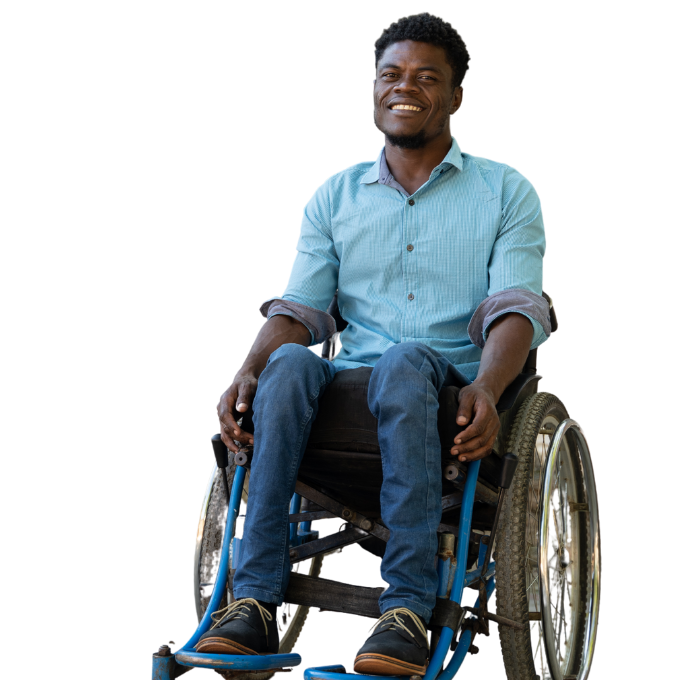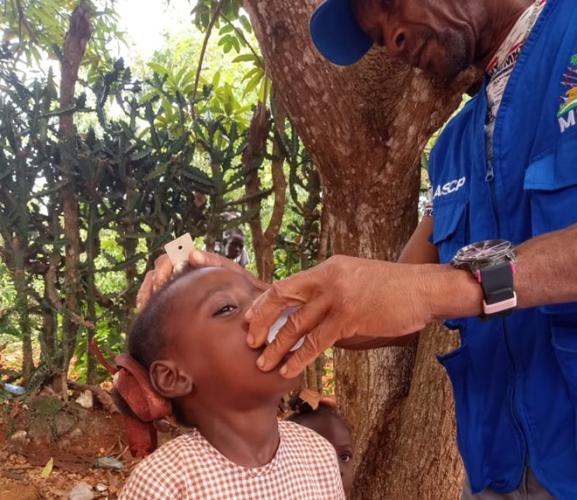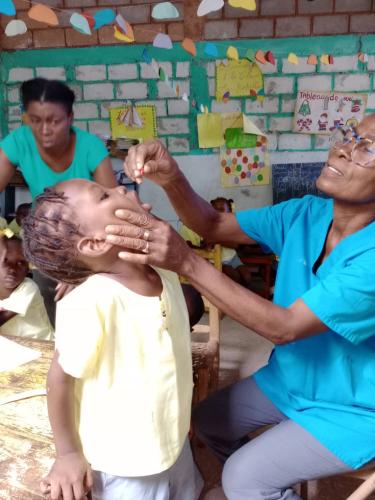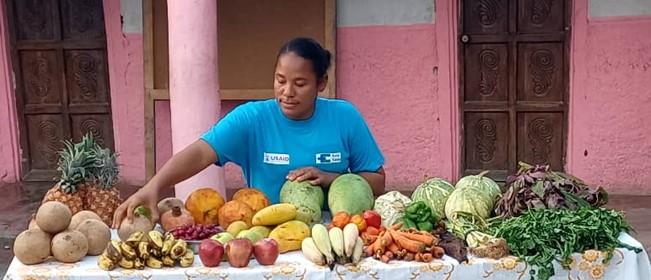“My favorite thing about my job is helping people realize their autonomy—just like I have.”
Your donation will help Maxsony provide critical support for patients with spinal cord injuries.


Vitamin A is essential for a healthy immune system and for children’s growth and development. Yet vitamin A deficiency is a public health problem in more than half of all countries around the world—including Haiti. In these places, it increases the risk of childhood infections and is the leading cause of preventable childhood blindness.
The good news is that vitamin A supplements are both inexpensive and effective at improving children’s health. In fact, according to UNICEF, periodic high-dose vitamin A supplementation reduces childhood mortality by 12-24%. Our Kore Sante project, funded by USAID, is mobilizing health workers and community health volunteers to expand vitamin A supplementation programs, reaching more remote communities in southern Haiti.

A community health worker gives vitamin A to a young girl at her school in Corail, Grande Anse.
Haiti celebrates National Vitamin A Day on April 9 in honor of Dr. Serge Toureau, an early champion of the fight against vitamin A deficiency. Kore Sante chose this occasion to support regional Ministry of Health offices and health facilities in promoting vitamin A with a robust two-pronged campaign across the four geographic departments of southern Haiti.
Kore Sante’s community health workers and volunteers reached over 10,000 children with vitamin A supplements by visiting participating schools in the program’s catchment areas. As nutrition lead Marie Roselene Guerrier put it, “These activities are very important because they enable us to reach children whose parents may not bring them to rally posts. We can give these children vitamin A and prevent eye problems.” In addition to distributing the supplements, our teams screened nearly 9,000 children for malnutrition and provided more than 5,000 children with medication to treat intestinal parasites, which contribute to malnutrition.
Finally, our teams conducted outreach and education on the importance of vitamin A for health and promoted the consumption of vitamin A-rich foods. This year’s messaging from Haiti’s Ministry of Health (MSPP) translates into English as, “All yellow, red, and green foods contain vitamin A: We’ll eat them, we’ll drink them, we’ll plant them.” Staff at the health facilities set up tables to exhibit local produce that is rich in vitamin A, from fruits like mangos and papayas to vegetables like carrots, tomatoes, and leafy greens. They focused on educating parents and reached over 8,000 people with practical information on vitamin A.

A health worker prepares an exhibit of foods rich in vitamin A—all but the apples locally grown.
One mother later told us, “After participating in this activity I changed the way I feed my child and I’ve seen my child change too. I’ve noticed that she’s recovering her health and looking better.”
Vitamin A has a critical impact on everyone’s health and well-being—especially children. Thanks to USAID’s support for Kore Sante, our teams are helping to save lives and build stronger, healthier communities, both now and for the long term.
Your donation will help Maxsony provide critical support for patients with spinal cord injuries.
